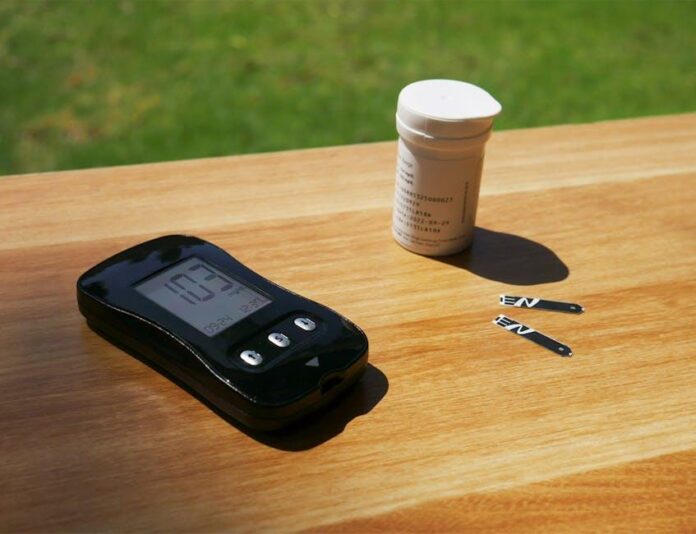
Gestational diabetes is a common health condition that affects pregnant women. It is characterized by high blood sugar levels that occur during pregnancy. This type of diabetes can have serious consequences for both the mother and the baby if not properly managed. In this article, we will explore what gestational diabetes is, its causes, symptoms, and how it can be managed to ensure a healthy pregnancy.
What is Gestational Diabetes?
Gestational diabetes is a type of diabetes that develops during pregnancy. It is a condition in which the body is unable to produce enough insulin, a hormone that helps regulate blood sugar levels. As a result, blood sugar levels can become elevated, leading to a variety of health complications for both the mother and the baby.
Gestational diabetes typically develops around the 24th week of pregnancy, when the body’s demand for insulin increases. This condition affects about 7% of all pregnant women, making it one of the most common complications of pregnancy.
Causes of Gestational Diabetes
The exact causes of gestational diabetes are not fully understood, but it is believed to be related to hormonal changes that occur during pregnancy. These changes can make the body less sensitive to insulin, leading to elevated blood sugar levels.
Other risk factors for gestational diabetes include being overweight or obese, having a family history of diabetes, and being older than 25 years old. Women who have previously given birth to a baby weighing over 9 pounds are also at increased risk of developing gestational diabetes.
Symptoms of Gestational Diabetes
Gestational diabetes often does not have any noticeable symptoms, which is why it is important for pregnant women to undergo regular screenings to detect the condition. However, some women may experience symptoms such as increased thirst, frequent urination, fatigue, and blurred vision.
If left untreated, gestational diabetes can lead to serious complications for both the mother and the baby. These may include preeclampsia, premature birth, and macrosomia, a condition in which the baby grows too large and may require a cesarean delivery.
Managing Gestational Diabetes
Managing gestational diabetes is essential to ensuring a healthy pregnancy for both the mother and the baby. This involves making lifestyle changes to help control blood sugar levels. Some tips for managing gestational diabetes include:
– Eating a balanced diet that is low in sugar and high in fiber
– Monitoring blood sugar levels regularly
– Exercising regularly, such as walking or swimming
– Taking insulin or other medications as prescribed by healthcare provider
– Attending regular prenatal check-ups to monitor the baby’s growth and development
It is important for pregnant women with gestational diabetes to work closely with their healthcare provider to develop a treatment plan that is tailored to their specific needs. This may involve working with a registered dietitian to create a meal plan that helps regulate blood sugar levels or meeting with a diabetes educator to learn how to properly monitor blood sugar levels.
In some cases, women with gestational diabetes may need to take insulin to help control their blood sugar levels. Insulin can be taken as an injection or through an insulin pump, and it is important to follow healthcare provider’s instructions for how and when to take it.
Complications of Gestational Diabetes
Gestational diabetes can have serious consequences for both the mother and the baby if not properly managed. Some of the potential complications of gestational diabetes include:
– Preeclampsia: a condition characterized by high blood pressure and protein in the urine, which can be dangerous for both the mother and the baby
– Premature birth: gestational diabetes increases the risk of premature labor, which can result in a baby being born before the lungs are fully developed
– Macrosomia: a condition in which the baby grows too large, increasing the risk of birth injuries and the need for a cesarean delivery
– Hypoglycemia: low blood sugar levels in the baby after birth, which can lead to seizures and other complications
It is important for pregnant women with gestational diabetes to work closely with their healthcare provider to monitor and manage the condition to reduce the risk of these complications. By following a treatment plan that includes regular screenings, monitoring blood sugar levels, and making lifestyle changes, most women with gestational diabetes are able to have a healthy pregnancy and deliver a healthy baby.
Conclusion
Gestational diabetes is a common health condition that affects pregnant women. It is characterized by high blood sugar levels that occur during pregnancy and can have serious consequences if left untreated. By understanding the causes, symptoms, and complications of gestational diabetes, expectant mothers can take steps to manage the condition and ensure a healthy pregnancy for both themselves and their baby.
Through regular screenings, monitoring blood sugar levels, making lifestyle changes, and working closely with healthcare providers, women with gestational diabetes can reduce the risk of complications and have a successful pregnancy. It is important for pregnant women to be aware of the risks of gestational diabetes and to seek timely treatment to protect the health of themselves and their baby.

















